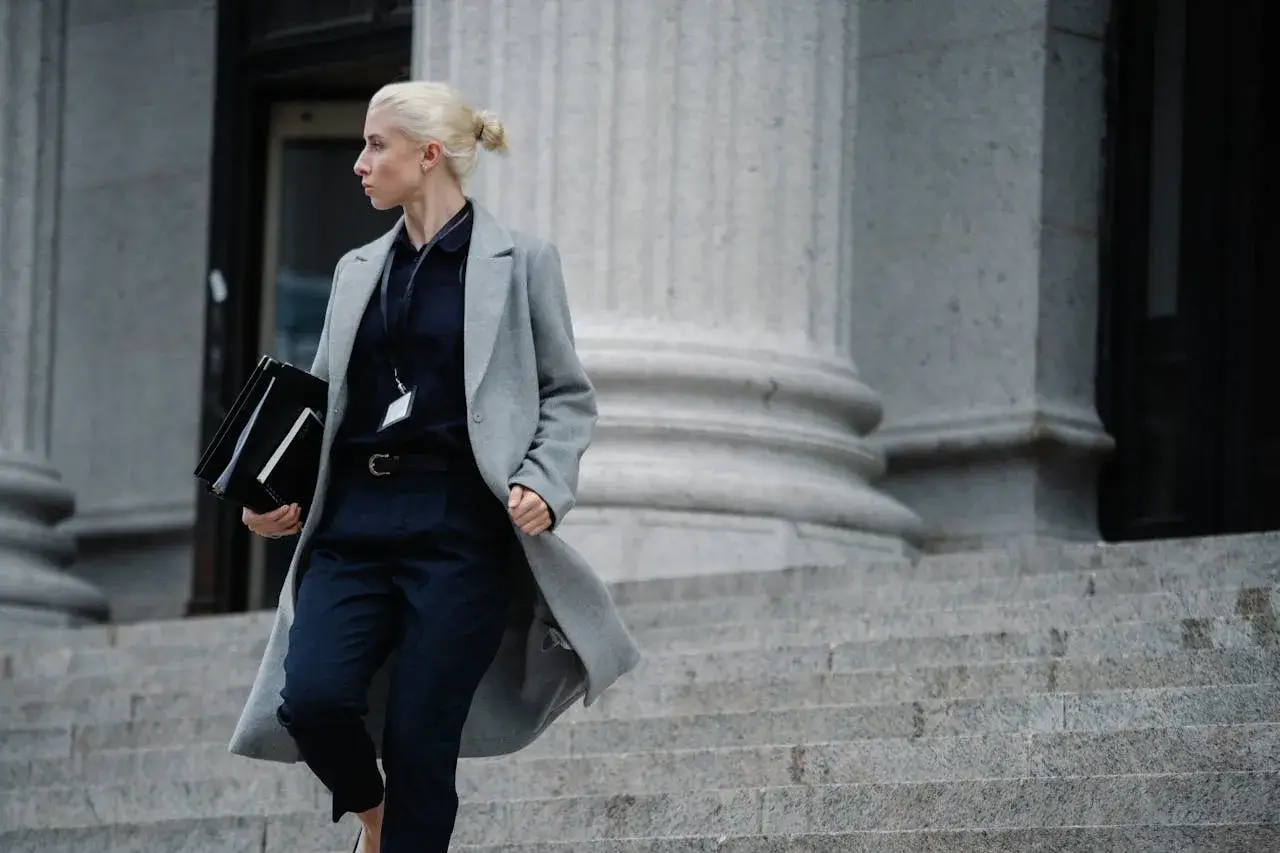Cartel & Criminal Antitrust Defense Law Practice
Strategic Partner Transitions in High-Stakes Competition Law
Elite Counsel for Cartels, DOJ Enforcement, and Complex Investigations
The cartel and criminal antitrust defense sector demands exceptional legal talent as enforcement intensifies across jurisdictions. With the DOJ's revolutionary 2025 Corporate Enforcement Policy creating new pathways to declination and the launch of unprecedented whistleblower reward programs, partners specializing in competition law face transformative opportunities. KiLawyers delivers consent-only, platform-first lateral moves for antitrust partners navigating this complex landscape.
What antitrust defense partners receive
- Enforcement Intelligence: Real-time DOJ priorities, whistleblower program analysis, and leniency strategy insights
- Government Network Access: Direct channels to former DOJ officials and current Antitrust Division leadership
- Crisis Management Framework: Dawn raid response protocols, client communication strategies, and investigation coordination
The Evolving Antitrust Enforcement Landscape
The criminal antitrust defense practice has entered a new era of enforcement sophistication. The Department of Justice Antitrust Division's aggressive stance on labor market cartels, algorithmic collusion, and procurement fraud has fundamentally altered the risk profile for multinational corporations. This shift creates extraordinary demand for partners who combine traditional Sherman Act expertise with emerging competencies in data science, ESG compliance, and cross-border coordination.
Unprecedented Regulatory Transformation
The May 2025 Corporate Enforcement Policy revolutionized how companies approach self-disclosure, offering a "clear path to declination" for organizations that voluntarily report misconduct. This policy shift, combined with the July 2025 Antitrust Whistleblower Rewards Program offering up to 30% of recovered fines, has compressed decision timelines and elevated the strategic value of experienced antitrust counsel.
Critical Practice Area Specializations
Modern cartel defense extends far beyond traditional price-fixing investigations. Partners now navigate complex matters involving:
- Labor Market Enforcement: No-poach agreements and wage-fixing conspiracies face criminal prosecution
- Algorithmic Collusion: AI-driven pricing platforms create novel theories of liability requiring technical expertise
- ESG Collaboration Risks: Sustainability initiatives between competitors trigger antitrust scrutiny
- Procurement Fraud: The DOJ's Strike Force targets bid-rigging in government contracts
- Individual Executive Defense: Personal criminal liability drives demand for specialized white-collar representation
Market Dynamics for Elite Antitrust Partners
The lateral partner market for criminal antitrust defense specialists operates at unprecedented velocity. Washington D.C. leads with a 400% surge in government-to-firm moves compared to 2024, creating a time-sensitive recruiting environment. Former DOJ Antitrust Division officials command compensation premiums of 20-30% above market, reflecting their unique value in navigating enforcement priorities.
Partner Profiles in Demand
The Enforcer-Turned-Advisor
Former senior government officials with insider knowledge of DOJ priorities and personal relationships with current prosecutors. These partners provide unparalleled strategic value in leniency applications and declination negotiations.
The Trial-Tested Litigator
Partners with first-chair criminal trial experience in cartel cases—an exceptionally rare credential given that most matters resolve through plea agreements. Their proven ability to litigate against the DOJ provides crucial leverage in all negotiations.
Compensation and Platform Considerations
Elite antitrust partners at AmLaw 25 firms with portable books exceeding $10 million command total compensation ranging from $4.5 million to $9 million annually. However, compensation alone doesn't drive mobility. Partners increasingly seek platforms offering:
- Conflict-Free Environments: Boutique firms attract top talent by avoiding the client conflicts endemic to global mega-firms
- Technological Infrastructure: AI-powered eDiscovery and compliance monitoring capabilities
- Cross-Practice Integration: Seamless coordination with white-collar, securities, and FCPA teams
- Geographic Reach: Presence in key enforcement hubs including Brussels, London, and Asia-Pacific markets

Building a Future-Proof Antitrust Practice
The convergence of technology and antitrust enforcement demands partners who transcend traditional legal expertise. High-value practitioners demonstrate competency in algorithmic defense, compliance architecture, and global coordination.
Essential Technical Competencies
- Algorithmic Defense Capabilities: Understanding machine learning models, pricing algorithms, and data science methodologies to challenge government theories in digital market cases
- Compliance Architecture Expertise: Designing and auditing corporate compliance programs that meet DOJ evaluation standards, creating recurring advisory revenue streams beyond crisis response
- Global Coordination Skills: Managing parallel investigations across multiple jurisdictions while navigating conflicting leniency regimes, data privacy laws, and privilege rules
Emerging Risk Frontiers
- ESG Collaboration Counseling: Advising on antitrust-compliant sustainability initiatives as competitors seek to collaborate on emissions targets and supply chain standards
- Supply Chain Resilience: Navigating competition law constraints as companies pursue nearshoring and strategic partnerships to secure critical inputs
- Data Sharing Frameworks: Structuring legitimate information exchanges and benchmarking initiatives that avoid creating illegal price signaling mechanisms

Regional Market Intelligence
Strategic location decisions can enhance compensation by 15-35% while aligning with emerging practice areas and client needs.
Primary U.S. Demand Centers
- Washington D.C.: The undisputed epicenter housing DOJ and FTC headquarters. Highest concentration of specialized practitioners and most active lateral market for government alumni
- New York: Financial services cartel investigations and follow-on civil class actions drive demand. Headquarters effect creates substantial compliance advisory opportunities
- San Francisco/Silicon Valley: Technology sector focus with emphasis on digital platforms, algorithmic pricing, and engineering talent no-poach agreements
- Chicago: Regional enforcement hub for manufacturing, agriculture, and transportation industries facing bid-rigging and price-fixing investigations
International Growth Markets
- Brussels: EU competition enforcement capital requiring dedicated presence for global practices. DG Competition's expanding focus on labor markets and digital platforms creates new opportunities
- London: Post-Brexit emergence as independent enforcement center with aggressive CMA and growing private damages litigation market
- Asia-Pacific: Critical for automotive and electronics supply chain investigations. Tokyo, Hong Kong, and Seoul serve as coordination hubs for regional enforcement actions

Strategic Transition Planning for Antitrust Partners
Platform assessment and integration planning are critical components of successful antitrust lateral moves. We provide comprehensive frameworks for evaluating opportunities and ensuring smooth transitions.
Platform Assessment Criteria
- Origination Credit Systems: Understanding how collaborative matters are credited across practice groups
- Integration Resources: Dedicated support for client transitions and cross-selling initiatives
- Technology Investments: AI capabilities for investigations and compliance monitoring
- Cultural Alignment: Decision-making processes, partnership track, and work-life integration
The KiLawyers Advantage
- Platform Intelligence: Comprehensive analysis of target firms' antitrust capabilities, compensation models, and integration success rates
- Strategic Positioning: Crafting compelling narratives that emphasize synergies beyond portable revenue—including sector expertise, government relationships, and technical capabilities
- Integration Planning: 100-day roadmaps addressing stakeholder introductions, client transitions, and early win opportunities
The Future of Criminal Antitrust Defense
The practice stands at an inflection point. Intensifying enforcement of labor market violations, mainstreaming of algorithmic collusion prosecutions, and the collision between ESG initiatives and competition law will reshape partner value propositions.
2026-2030 Market Outlook
- Automated Detection: Government deployment of AI for proactive cartel screening reduces reliance on leniency applicants
- Individual Accountability: Continued focus on executive prosecutions drives demand for specialized white-collar defense
- Compliance Premium: Partners who architect effective compliance programs command recurring advisory fees and stable revenue streams
- Technical Specialization: Intersection of law, data science, and economics creates new premium practice niches
Key Developments Shaping the Market
The convergence of technology and antitrust enforcement demands partners who transcend traditional legal expertise. High-value practitioners demonstrate competency in algorithmic defense, compliance architecture, and global coordination skills that create sustainable competitive advantages.
Ready to Explore Your Options?
The criminal antitrust defense sector rewards partners who combine deep substantive expertise with strategic market positioning. Whether you're a former government enforcer, trial-tested litigator, or compliance architect, KiLawyers provides the confidential, consent-based process needed to maximize your value in today's dynamic market.
For partners evaluating strategic transitions in the cartel and criminal antitrust defense sector, timing is critical. The current enforcement climate and talent market dynamics create unprecedented opportunities for those who move decisively with proper strategic planning.